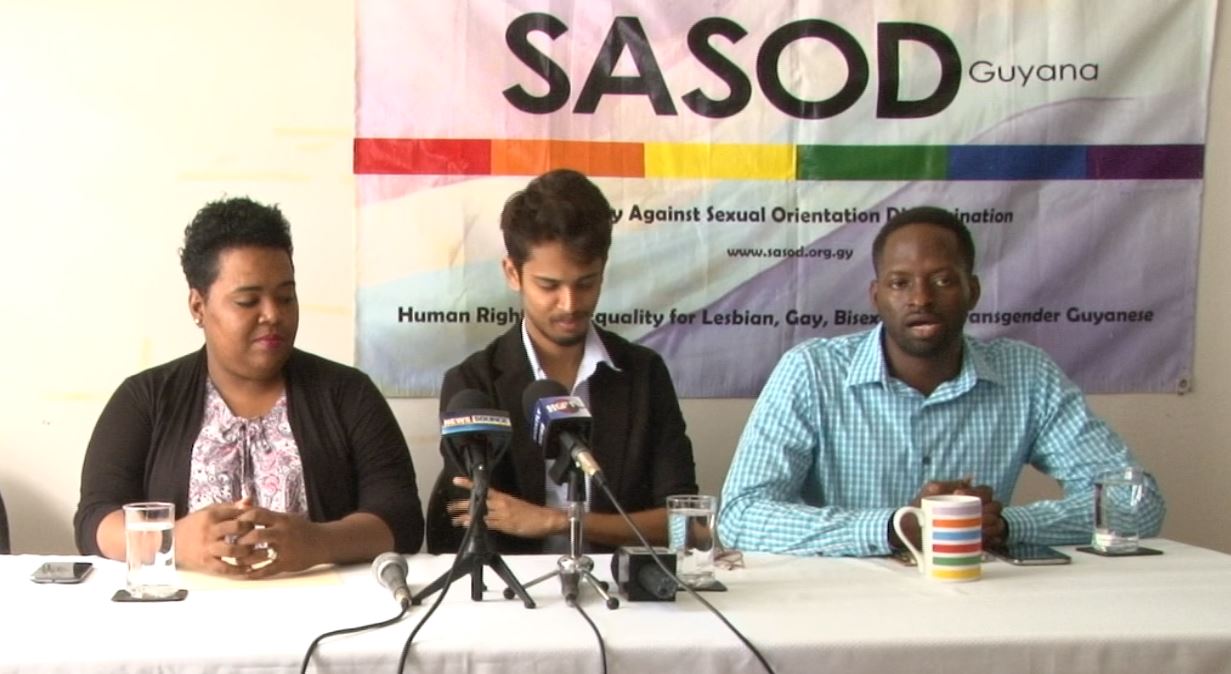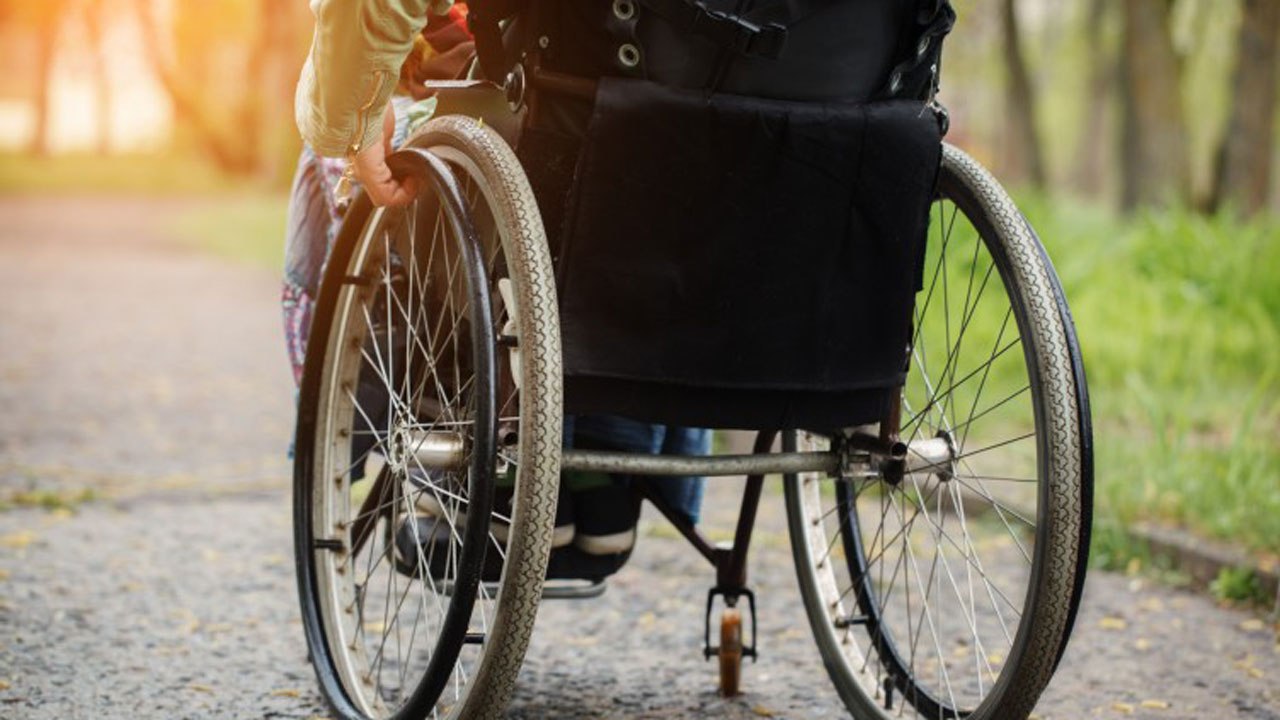By Neil Marks
Guyanese are becoming more tolerant of sexual minorities and SASOD, the leading advocacy group which fights discrimination based on a person’s sexual orientation, says it is seeking public funding for some of its work.
“We’re grateful that it is changing (tolerance); it’s improving.
“We’re seeing progress, but we’re not a 100% there yet and we know that it needs to a systemic approach to sustain that,” Joel Simpson, who leads SASOD, said at a press conference in Georgetown Thursday.
Simpson recalled that a 2013 poll showed 58% of Guyanese were tolerant to homosexuality, but that 25% were completely intolerant and agreed that violence against homosexuals was appropriate.
But he said over the last five years there has been a significant amount of public education and engagement with the public, including at bottom house interactions, which has helped to change attitudes towards the Lesbians, Gay, Bisexual and Transgender (LGBT) communities.
“I am willing to bet that if we were to do that poll today we would see far higher than a 58% tolerance level,” Simpson declared.
Simpson said that even the Police’s action towards sexual minority groups are changing and he publicly thanked the Police for providing security during the Pride parade held in Georgetown two Saturdays ago.
Police have often been accused of harassing gay cross-dressers in the capital, but Simpson said education done over the years may be helping to change the Police’s attitude.
“I think that [awareness] is contributing to the kinds of change and shifts that you will see in the Police response to LGBT people,” Simpson stated.
The parade was the first of its kind in the Commonwealth Caribbean.
Same-gender sex is outlawed in Guyana, as it is in eight other English-speaking islands, and Simpson said SASOD’s plans include “strategic litigation” to get the courts to strike down the law here, following successful cases in Belize and Trinidad.
But before, Simpson said a first effort would be made to get the Parliament to revisit a motion to prevent discrimination against persons on all grounds, including sexual orientation.
The former PPP government had bowed to pressure from religious groups which erroneously argued that the regulation would legalise homosexuality.
SASOD had already appealed to the country’s highest court to strike down the country’s cross-dressing law.
In September 2013, then Chief Justice Ian Chang ruled that that cross-dressing by men is not a crime, but he said they could not do so for an improper purpose.
Given that Chang did not define “improper purpose,” redress was sought at the Court of Appeal but Chang’s ruling was upheld.
The case is now being pursued at the Caribbean Court of Justice – Guyana’s final appellate court – which will hear the case at the end of this month.
SASOD Thursday said that a study from the Georgetown Law Human Rights Institute based in Washington D.C., found that while there were incidents of “systemic discrimination and abuse” against the LGBT community, there is still an existing information gap regarding the nature and scale of such incidents in Guyana.
The team conducted its study in Regions in Demerara and Berbice.
“The report, in its entirety, highlights deeply felt experiences by those who suffer violations of their human rights resulting in a cycle like life of systematic and endless violations of human right,” SASOD stated.
The report urged the Government of Guyana to uphold its international obligations to protect the LGBT community by enacting non-discrimination legislation, rejecting outwardly discriminatory laws, and educating and encouraging state actors and others to apply law and policy in a neutral and inclusive manner.
SASOD stated: “To experience discrimination, stigmatization, violence, and a general silencing of one’s authentic self at home, at school, in the workplace, in public spaces, and especially at the hands of those with the responsibility to protect persons from such abuse is overwhelmingly damaging to one’s ability to enjoy human rights and live a life of dignity.”
Today marks 15 years since SASOD emerged to challenge discrimination based on one’s sexual orientation but its mandate has grown to include advocacy against various human rights abuses and has been engaged in a range of social and health services.
As a result, Simpson said SASOD would be asking government ministries, especially the ministries of Social Protection and Public Health, “to provide resources to support them to do some of the work they are not able to do because they can’t reach the populations that we could reach.”
“We’re advocating that the ministries of Social Protection and Health make allocations for us in the national budget so that we can support them to provide services that they are not best positioned to provide,” he stated.
“We’re saying it is not a handout; we’re helping the government to do its own work,” Simpson added.
He said that SASOD provides services for persons of all sexual orientation and gender identities affected by gender-based violence.
In addition, he said that SASOD would soon be using its Duncan Street, Lamaha Gardens office as a community clinic on Saturdays and reasoned that the Ministry of Public Health could provide the doctors and nurses needed to run the clinic.












